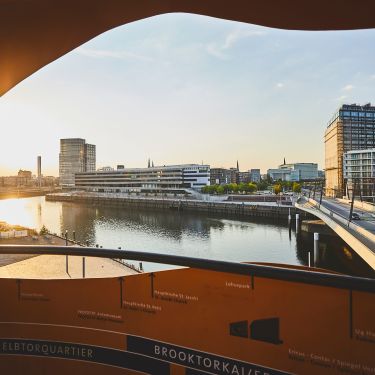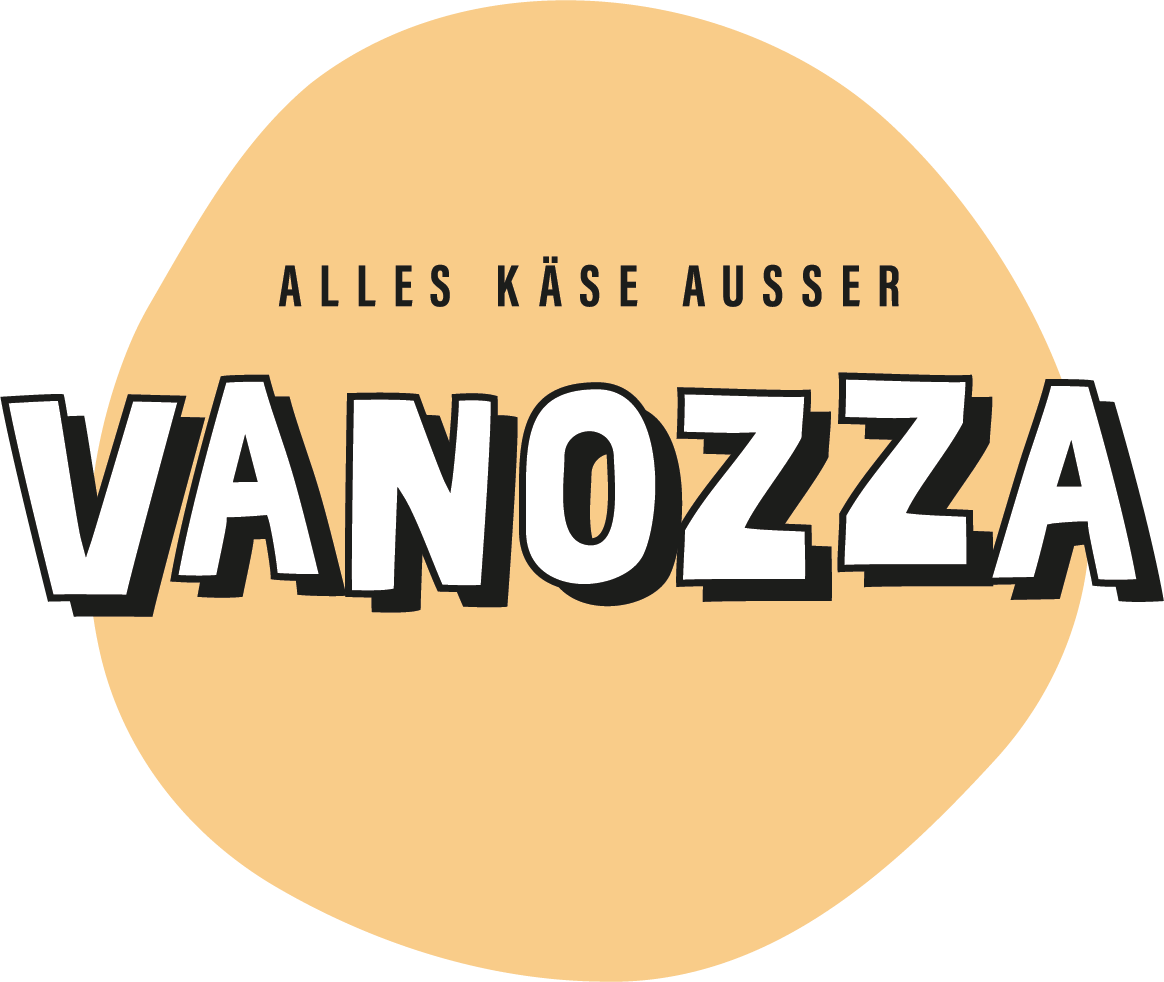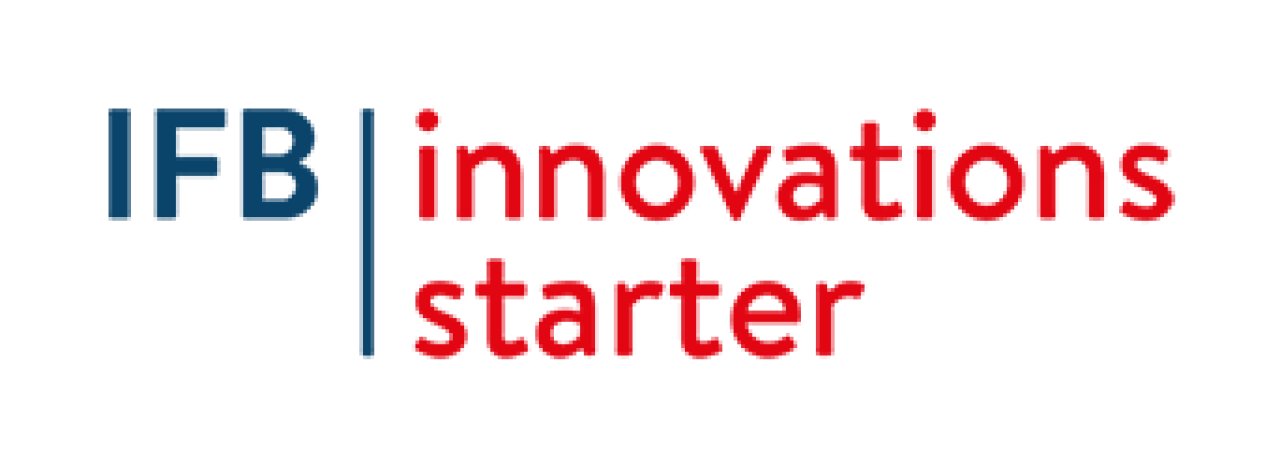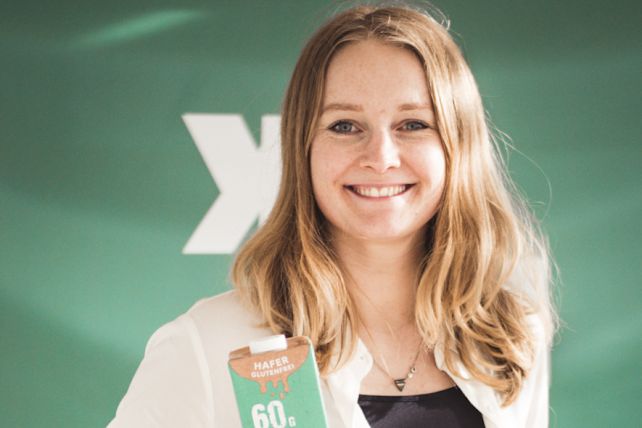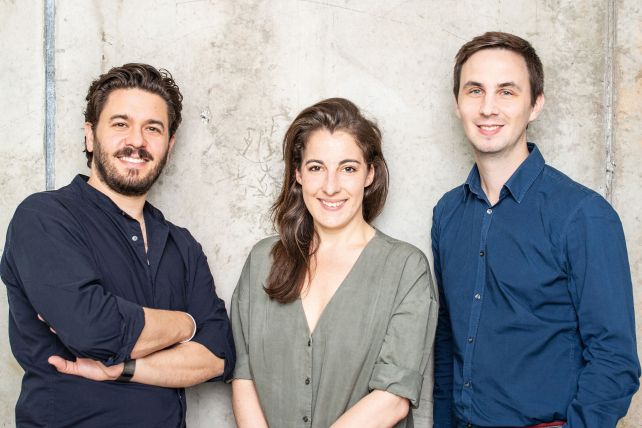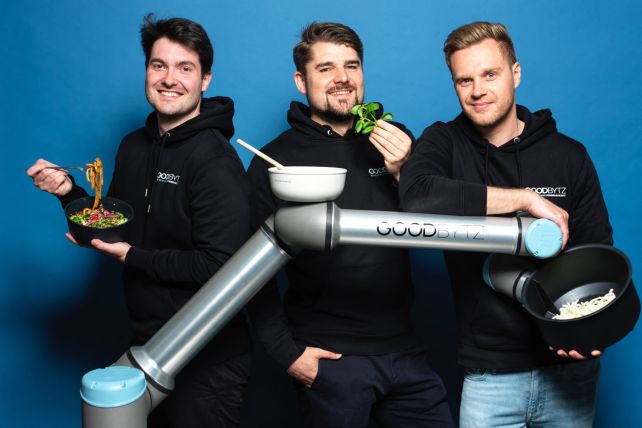Plant-based alternatives to animal-based foods are meeting with steadily growing consumer interest. In the matter of quality, cheese in particular represents a real challenge for producers. The startup Vanozza is well on its way. Its success story is closely linked to the commitment of a number of Hamburg funding programmes and institutions.

It all began in the first vegan pizzeria
Bramfeld is one of those Hamburg neighbourhoods that is a great place to live, but not necessarily the birthplace of creative and innovative ideas. Despite this, the story of one of the most promising new food startups began here in 2015. After graduating from high school, Nico Hansen didn't want to go to university, but wanted to open a restaurant. Inspired by his Italian aunt and his little sister, who had introduced him to veganism, he wanted to open a vegan pizzeria. He found a suitable location for his Vistro in the BRAKULA cultural centre.
At the time, opening a vegan pizzeria was a real pioneering achievement, at least in Germany. Accordingly, there were hardly any suitable ingredients that met Nico's quality standards. Cheese has always posed a particular challenge in the development of plant-based alternatives to animal products. A number of criteria are important here: Flavour, texture, appearance and, last but not least, meltability. As there was nothing on the market in 2015 that achieved satisfactory results in all categories, Nico started experimenting himself. He chose cashew as the main ingredient, adding psyllium husks and coconut fat.

To university and back to the test kitchen
It took a number of attempts before the cheese, or more precisely mozzarella substitute, began to resemble its buffalo milk counterpart, but the result was certainly impressive and tasty. The guests at the Vistro were very satisfied, and some became regular customers because of the vegan pizza. One of them was Patrick Alpoim, who had trained as a system caterer and took over the restaurant when Nico started a degree in social economics in 2019, which he has since completed.
However, the idea of producing vegan cheese alternatives on a larger scale remained in the back of his mind. In 2020, after the outbreak of the Covid pandemic, it came to the fore again. Restaurants had to close temporarily, and studies only took place online. This gave them the opportunity to continue working on the recipe and, among other things, on the shelf life and "cheese pull". At some point, the time came when the restaurant kitchen and its equipment were no longer sufficient for the planned production quantities, and a suitable machine was purchased second-hand.

2021 is the official founding year of Vanozza
2021 saw the official launch of the startup Vanozza. The inclusion in the foodlab accelerator programme helped the company take the step towards professionalisation. The foodlab is a combination of coworking space, test kitchen, pop-up restaurant and event venue, making it an excellent place for food startups to try things out and grow. With its accelerator, it also offers professional support and access to an extensive network. Vanozza was able to qualify for the programme twice.
Vanozza was also able to win over a number of customers in 2021, particularly pizzerias that wanted to satisfy the ever-increasing demand for vegan dishes. It quickly became clear that Vanozza could be a commercial success. In order to actually achieve this, however, more potential customers than just local restaurateurs had to become aware of the aspiring food startup.
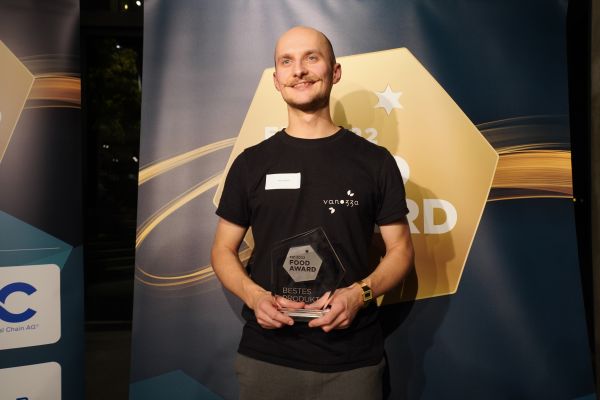
The FIC FOOD AWARD and two funding programmes as growth accelerators
One opportunity was the FIC FOOD AWARD initiated by Hamburg Startups. In 2022, Vanozza applied for this competition, which is aimed at startups from all over Europe. The final took place at foodlab in October and Vanozza secured first place. The prize included listing talks with the catering wholesaler CHEFS CULINAR and the supermarket chain REWE, which proved to be very successful.
However, 2023 began with the inclusion in two further funding programmes, which showed just how versatile Vanozza had become. The Next Commerce Accelerator (NCA) generally invests in startups that belong to the e-commerce sector and offer digital solutions for this area. The commitment to a food product is an absolute exception. This applies even more to the InnoFounder programme of IFB Innovationsstarter GmbH. The focus here is on technical innovations and Vanozza was the first food startup ever to be awarded the programme because its production process is one such innovation.

Entering the food retail sector
Patrick, one of the two founders, has long since left the company, but Cindy Ta and Marie Tauber support Nico in the growth of his startup. The two are mainly responsible for marketing and communication. Production has now been taken over by a Hamburg-based company that can supply the required quantities in high quality. Demand for CHEFS CULINAR has risen steadily over the course of the year and things have also been going well in the food retail sector for several weeks.
Vanozza is now available in several hundred REWE Nord stores. The team has just completed a tasting tour of ten supermarkets. The response was almost universally positive and the acceptance of the vegan cheese substitute was greater than expected. A nice reward for a long period of preparation, as many details had to be finalised before retail sales could begin in September. These included the packaging, packing and product design, which only plays a minor role in wholesale but is important when addressing consumers.
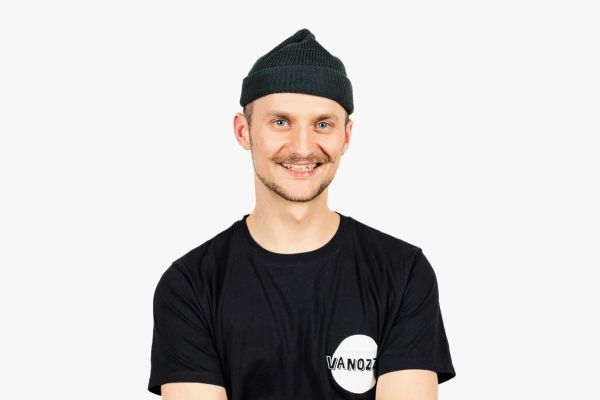
Co-operations and networks for success
Entering the retail sector is already a huge step for most food startups, but the even greater challenge is to establish themselves there permanently. It remains to be seen whether Vanozza will succeed, but it certainly has other products in the pipeline. There is already a Parmesan substitute, and being planned are alternatives to feta and mozzarella sticks in collaboration with Veggie Crumbz, another Hamburg-based food startup. For the supply of cashew nuts, Vanozza was able to secure Korosho, a startup that guarantees fair cultivation conditions, while the ooha Food Company, which places particular emphasis on sustainability, is responsible for distribution.
Over the course of his startup career, Nico has repeatedly realised how important a broad network is for success and that Hamburg offers excellent opportunities.

